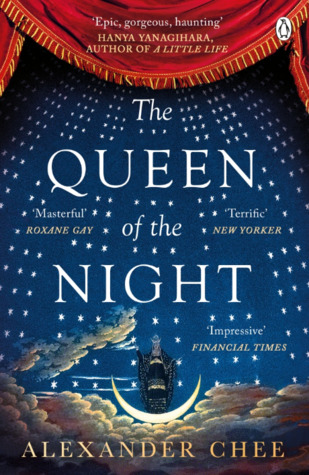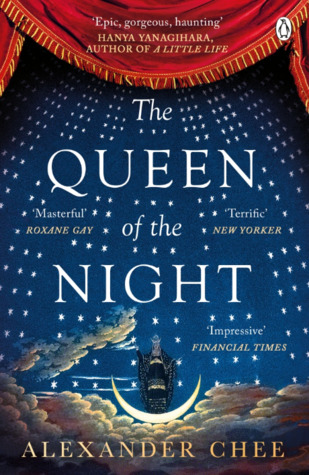Lilliet Berne is a sensation of the Paris Opera, a legendary soprano with every accolade except an original role, every singer’s chance at immortality. When one is finally offered to her, she realizes with alarm that the libretto is based on a hidden piece of her past. Only four could have betrayed her: one is dead, one loves her, one wants to own her. And one, she hopes, never thinks of her at all. As she mines her memories for clues, she recalls her life as an orphan who left the American frontier for Europe and was swept up into the glitzy, gritty world of Second Empire Paris. In order to survive, she transformed herself from hippodrome rider to courtesan, from empress’s maid to debut singer, all the while weaving a complicated web of romance, obligation, and political intrigue.
Featuring a cast of characters drawn from history, The Queen of the Night follows Lilliet as she moves ever closer to the truth behind the mysterious opera and the role that could secure her reputation — or destroy her with the secrets it reveals.
DETAILS:
Date finished: 14 November 2018
Publisher: Penguin
ISBN: 9780718185091
~*~*~*~
REVIEW
The Queen of the Night is, quite literally, an operatic masterpiece. As soon as I read the New Yorker‘s description of it as a “postmodern bodice ripper”, I was intrigued. My heart was on the line the moment Lilliet Berne strode onto the stage in her flouncing pink ballgown. And with Alexander Chee’s graceful storytelling, I knew only a few pages in that I had no hope of finishing this novel without having lost a piece of my soul to it.
Chee uses true historical events and figures as a frame in which to weave his fictional enchantment. Operas, landmarks, and reincarnations of legendary personalities such as the Verdis are seamlessly juxtaposed with the imagined characters of Lilliet, her lovers and her adversaries. The result is an exquisite work of historical fiction that performs daring acrobatics on the trapeze bordering reality and fantasy. Seldom am I so deeply entranced by a novel that it becomes difficult to discern where the historical overlaps with the fictional.
There are moments, however, where Chee’s operatic style works to his detriment. The novel is staggering – both in length and in its dramatic material. At some points I found myself frustrated because, in the true style of an operatic heroine, Lilliet found herself entrapped in the same emotional and physical prisons over and over and over again. She would free herself only to fly straight into a second gilded cage, then escape from that one only to fall into the first again. Though this was clearly intended to multiply the already monstrous suspense that echoed throughout the novel, it did not manage to avoid becoming dizzyingly repetitive.
The swashbuckling heroine and her enthralling story did manage to salvage the plot from falling into monotony. There are few other protagonists of historical fiction that manage to be at once real and ethereal, startlingly engaging no matter whichever new literal or figurative death they must defy. Lilliet’s arc may have been slow and rather cyclical, yet her wit and charm are distracting enough that these flaws are almost forgivable. She is not so much a sympathetic protagonist as she is exciting to watch – like a circus performer, she holds us in the palm of her hand as we watch her, open-mouthed in wonder. We feel fear for her not for her personal sake, but because watching her die would ruin the performance.
Overall, this is a truly breathtaking novel with a thrilling story line and exquisite writing. Historical fiction lovers will not be disappointed, but it also has the potential to pleasantly surprise other readers looking for something subversive and seductive.
~*~*~*~
Rating: 4/5
Recommended to: Everyone who finds the phrase “postmodern bodice ripper” as appealing as I do.

